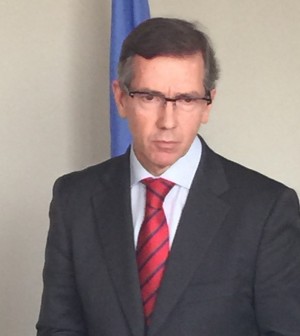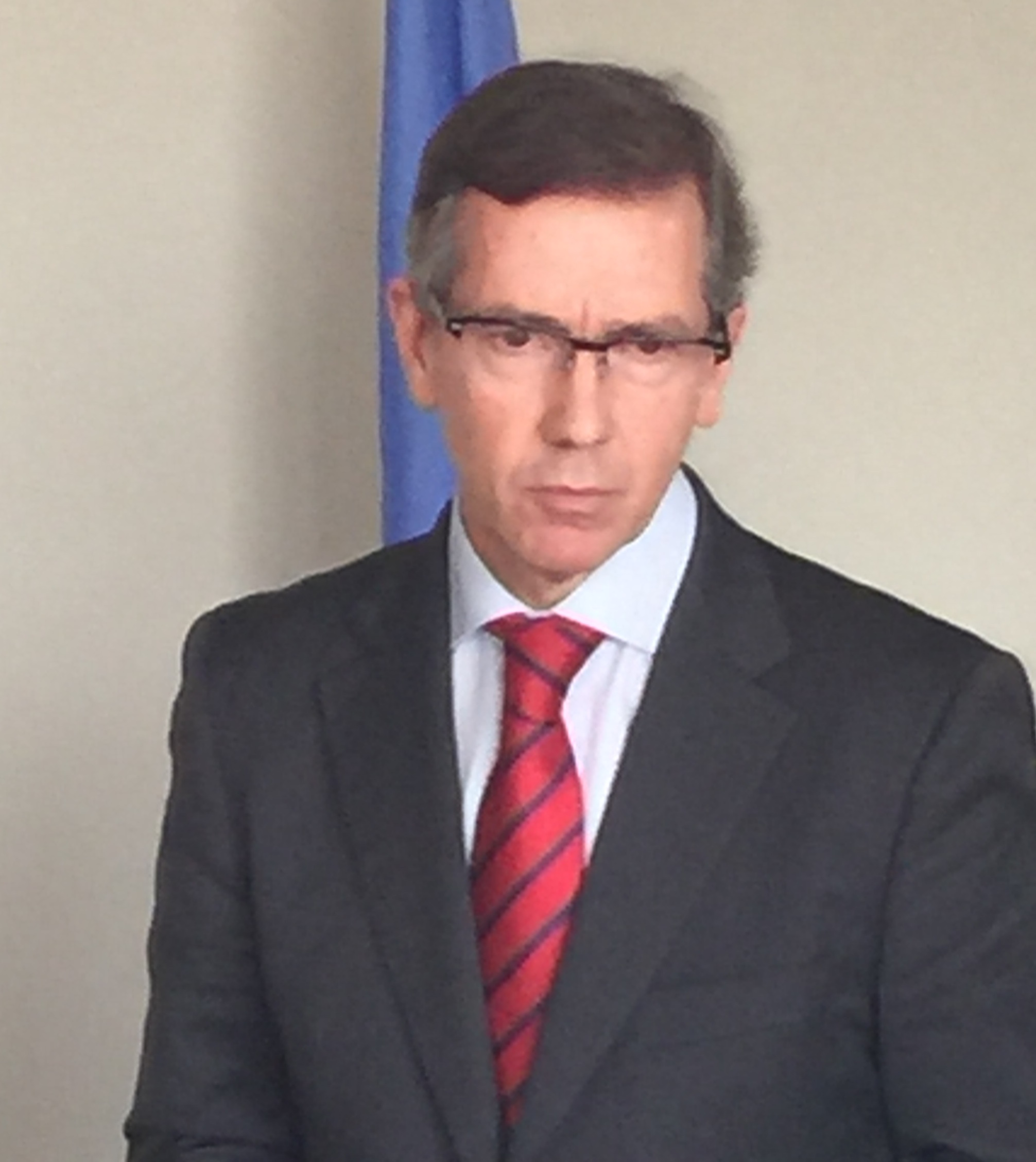Libya Herald reporters.

Tunis, 21 October 2015:
While confessing that the Peace Accord was currently in limbo, UNSMIL Chief Bernardino Leon today indicated . . .[restrict]how the last disputed points in the deal will be passed on to the new unity government to sort out, the minute it is signed into office by the House of Representatives.
That didn’t happen on Monday when the HoR issued a statement rejecting the current deal and backing the draft of last July. But Leon said the parliament had not had a proper vote, pointing out that some 70 MPs had since declared that they would have voted for the deal, had they been given the chance.
Moreover, said Leon, speaking at a press conference at UNSMIL’s Tunis office, “It is not an option to endorse the July text, because you don’t have the annexes, you don’t have many of the final provisions, mechanism to solve legal disputes, et cetera. So, the July text is not a final text and cannot be endorsed”.
He insisted that it was “very urgent that the unity government is in Tripoli, is sending positive messages from Tripoli, ” adding, “It is not a government yet, it’s true. We need the endorsement of the agreement by the institutions involved in this dialogue [for it] to become a full government, but it is important that the Libyans see that we go on and that the proposals from this dialogue will prevail”.
Leon once more said flatly that there would be no further changes to the deal. However, he added that once the Accord had been signed, the new government would come into being and it would then be its job to take on board the outstanding concerns.
A relaxed-looking UNSMIL chief sought to counter protests in both government and Libya Dawn regions that the accord had been imposed by UNSMIL in general and by him in particular. Some of the placards held up at last Friday’s protest in Benghazi’s Kish Square, could hardly have been more explicit about his desired departure.
The UN and the international community were facilitators of the deal, he insisted. “We are not the ones putting these ideas or proposing the names in the case of the national unity government”.
He said that, for example, there had been a clear consensus among dialogue players for the last minute addition of a third deputy premier from the south. It had, he said, been one of the strongest consensuses he had seen that the south should be represented on the presidential council. He did not however explain why no one had thought of the move before.
In this respect, he also mentioned a greater role for Benghazi whose people, he said, were suffering more than anyone else. He said he was ready to pass on such a request, even the possibility that there might be one Benghazi member of the presidential council.“But I can only convey this to the people involved in the Libyan dialogue. I cannot take the decision. This decision has to be taken by consensus”.
He repeated that the Accord was not up the UN nor the international community but added “If there was very strong consensus about any of the points, proposals coming from one side or the other, of course, it goes without saying that they will be included in the agreement”.
Given his earlier comment that there could be no more changes, he was presumably referring to proposals that the new unity government would need to accommodate.
“We will convene new meetings in the coming days” he said, “to listen to proposals and ideas from the Libyans involved in the process and those outside the process”.
There was no chance, he said, for this process to be highjacked with unilateral declarations, because the majority of Libyans didn’t want any more confrontations.
There was no alternative to a political solution. “Unfortunately, all these groups or personalities that are opposing the political solution have not been able to put on the table any alternative. So it is just a negative message, just a No, but they are not able to tell the Libyan people what can be done to improve their situation”.
Leon was quizzed on the long-threatened UN sanctions against those seen to be obstructing the peace process.
“What we are seeing today in Libya, ” he said, “ is small groups of people, hardliners in both camps, specific personalities taking the decision to use the power they have not to allow … a democratic vote. And it has happened exactly the same in the HoR and in the GNC. The international community, the Security Council is saying this cannot happen. You cannot use your power, your competencies and your specific role in an institution to prevent the democratic exercise of the vote”.
Leon said that there were other crises in the region where the international community was not agreed on a solution. But he stressed that it had to be appreciated the, with Libya and its peace accord, the response was unanimous.
“This Libyan proposal has been supported strongly by international community and I think Libyans can be proud to have this support from all these international actors and I think this is a very important asset for this”. [/restrict]










